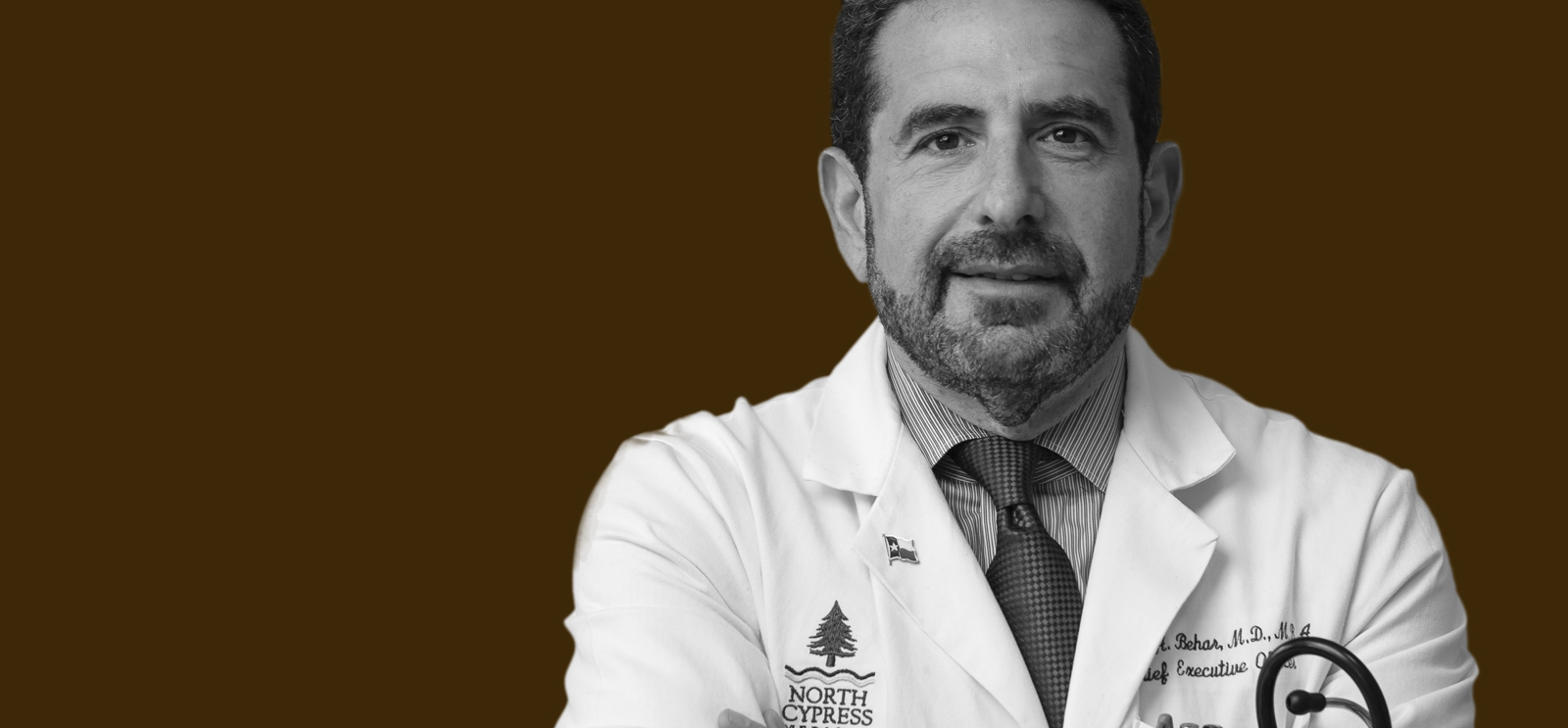
(Photography by Jeff Fitlow)
Questions for doctor, businessman, and quadruple degree holder Robert Behar.
Robert Behar, LAB’81, AB’83, MD’87, MBA’11, had earned three of his four UChicago degrees by age 23. The son of Cuban refugees, Behar enrolled in the College at 16 and in the Pritzker School of Medicine at 19. Decades later, he returned to attend the executive program at Chicago Booth. A cancer specialist, Behar is now chairman and CEO of North Cypress Medical Center in Cypress, Texas.
Behar serves on the Visiting Committee on the College and Student Activities and was the first to name a house in the new Campus North Residential Commons, which will open in 2016 on the site of Pierce Tower, where he lived (unhappily) as an undergrad.
The Magazine’s interview with him has been edited and adapted.
You have a degree from Lab but never attended. How did you manage that?
I had placed out of the advanced classes at Niles North High School and didn’t have much to do my senior year, so I applied to the University of Chicago. They gave me a high school diploma after my first year in the College. Otherwise I would still be a high school dropout.
I graduated in three years and applied to the medical school. During my interview the dean of students looked at me and said, did you grow that mustache to look older? I said, as a matter of fact, yes. He said, we need to check with the Law School to see if it’s legal for you to be in the medical school because you’re under 21. But it was fine.
What was your undergraduate experience like?
I started out in Pierce Tower. The food was absolutely horrible. I don’t want to say anything bad about the University of Chicago, because it’s really changed my life, but I lost a lot of weight. After the first couple of months I asked if I could go back home and commute. The following year I was in the Shoreland, a really cool place. It was an old hotel and there were still some elderly residents.
Everybody should have the opportunity that I had of being influenced and impacted by an amazing university, and I’m a huge ally of Dean Boyer’s quest to make a transformative impact on the residential life of College students. That’s why I chose to name Behar House in Campus North with a gift of $2 million through my foundation. Behar House is going to be not just a home but a place where students will be able to relax, socialize, study, and really improve the quality of their life. That’s the goal that we all have.
How did you find the College academically?
Very difficult. In my first year I was in organic chemistry, biochemistry, linear algebra. It was frightening, but I decided to confront it.
The classes that made the biggest impact on me were not in science, because I went on to be so specialized. But the anthropology, sociology, psychology, and psychoanalysis courses gave me a reference to deal with human beings, which I use to this day in medicine and business.
Who were your favorite professors?
Bernard Brown [DB’55, AM’65, PhD’73], sociology professor and dean of Rockefeller Chapel. His Core course introduced me to Clifford Geertz and Victor Turner and Lévi-Strauss and Freud. He introduced me to a series of ideas I would not have otherwise come across.
Were you involved in any clubs?
The College Republicans. Even then I was a Republican. Coming from parents who were communist Cuban refugees, I would immediately spar with everybody, including the professors. But they accepted me.
How did you get interested in cancer?
The thought of cells going berserk, just attacking people and ruining their lives, gave me the grand scheme to go to warfare and try to help.
What was it like to return to UChicago after so many years?
For my entire life, I was always the youngest person in the class. When I got to Booth, I was one of the oldest. But I still acted like one of the youngest—youthful enthusiasm.
Business students tend to be better rounded than science people. They partied a lot. But I was running a hospital and a practice and had a family. When I flew back to Houston, I just didn’t have any time to do homework. So I didn’t go to the Cubs, the pubs, and all that stuff.
Why get an MBA?
I was recruited to start a cancer center in Houston, which I grew to four cancer centers. Then I opened a hospital that very rapidly grew into a large company. It employs 1,500 people and brings in about $1.5 billion in revenue. I also became the real estate developer for the hospital. At that point, I’d had no formal business or legal education.
You volunteered for your College reunion. How do you choose which reunion to attend?
The College is really where it all started for me. I learned different things at different points of my life. At the College of the University of Chicago, I learned how to think. That’s pretty big. I owe the College a lot because of that.
